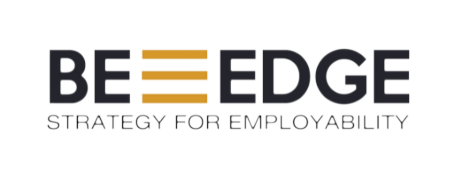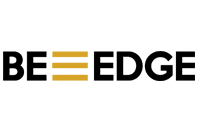
How I used VRIO in my personal strategy to achieve sustainable competitive advantage
by Daniel McCusker Alvarez
August 27, 2024
In the Fall of 2020, I accepted my second co-op in Munich, Germany working in U.S. Taxes for European clients investing in the U.S. Real Estate market. The shift from my finance concentration to tax compliance and tax accounting was new, but I had the knowledge of investments and their structure, so I was not unfamiliar with the industry. Throughout my co-op, which I extended to 8 months, I started to really enjoy U.S. tax compliance and the unique tax issues our team covered. As I wrap up my last semester at Northeastern, I can apply what I learned during co-op and classes to my strategy. Specifically, the VRIO framework I believe can be used not only to analyze firms but also our personal strategy.
American working abroad: leveraging your background
My job in Munich hired co-ops from Northeastern because of their knowledge of American generally accepted accounting principles (GAAP) and ability to work in English on a full-time basis and understand tax law. If your background can add value, make sure you use it as you will become a unique member of a team. Another language, or state specific information can be very useful, so always make sure to leverage your background and your knowledge.
Industry and specific knowledge: valuable, rare, costly to imitate and organized to capture value
When working in tax, one of the key things is to be aware of upcoming tax regulation that will impact portfolios/clients. This recommendation goes for any industry though: be aware of what will change in your industry and prepare your team or your clients for it. In our case, in 2021, we would read a report about Biden’s new tax plan and see how it would impact our clients’ tax liability. Staying ahead of the curve will ensure you have a sustained competitive advantage.
Inter-disciplinary studies: Valuable, rare, and costly to imitate
I have a concentration in Finance, a minor in data science, and a personal interest in international relations. This blend creates a unique profile, and a unique resume. During the hiring process, managers have told me they care about finding someone with the right set of skills and background, but also someone who is different and interesting (especially for entry level jobs).
Being able to discuss issues related to international affairs, data science AI’s, and the latest news on Wall Street is a key resource for me. I have implemented this into my strategy because it gives me an advantage over the peers in my field. Indeed, my work in programming means that I am very well suited for tech jobs in my industry, or jobs in my industry that require tech skills.
For example, this simple scatter plot I created in one of my data science classes illustrates how often the United Nations Security Council Resolutions mention Libya in the last 20 years. Notice the uptick in 2011 which corresponds to the first Libyan civil war and the subsequent intervention of a NATO-led coalition. Having this knowledge is key in making me a well-rounded individual. I obtained a lot of this knowledge through my involvement in the Northeastern University International Relations Council, a competitive model debate team on campus where I was also the treasurer and helped organize travel (another useful quality: event and travel planning).

Inter-personal skills: being a people person fulfills the VRIO framework
When I had my first review with my manager, he told me “It’s good you are a people-person, because this is a people-business” (about tax consulting). Communication is one of the most important soft skills one can have, especially when a client facing role is involved and bringing in clients means bringing in revenue. A strong network and ability to talk to people is what can help bring in new clients and directly capture value for my organization.
This is also part of my strategy, not just from a professional standpoint but from a personal one: it is good to be able to communicate and make new connections.
Soft skills versus hard skills
This also brings up the question of hard skills versus soft skills. Many case studies and articles highlight the importance of soft skills over hard skills, because at the end of the day, it is much easier to teach someone a job specific hard skill than it is to make someone sociable. When presenting yourself to a potential employer, your soft skills must come across clearly: make sure you emphasize teamwork and problem-solving as well as organizational skills. Communication should be shown in how you speak and talk about your experience, rather than discussed explicitly.
About the author
Daniel McCusker Alvarez is a Northeastern University graduate (D’Amore McKim School of Business, 2022) with a major in Business Administration, finance concentration, and a minor in Data Science. During his time at Northeastern, Daniel worked at Warburg Pincus in New York City and at Ernst & Young GmbH in Munich, Germany. He was also involved with Northeastern University’s International Relations Council (model UN, model NATO, model Arab League).


